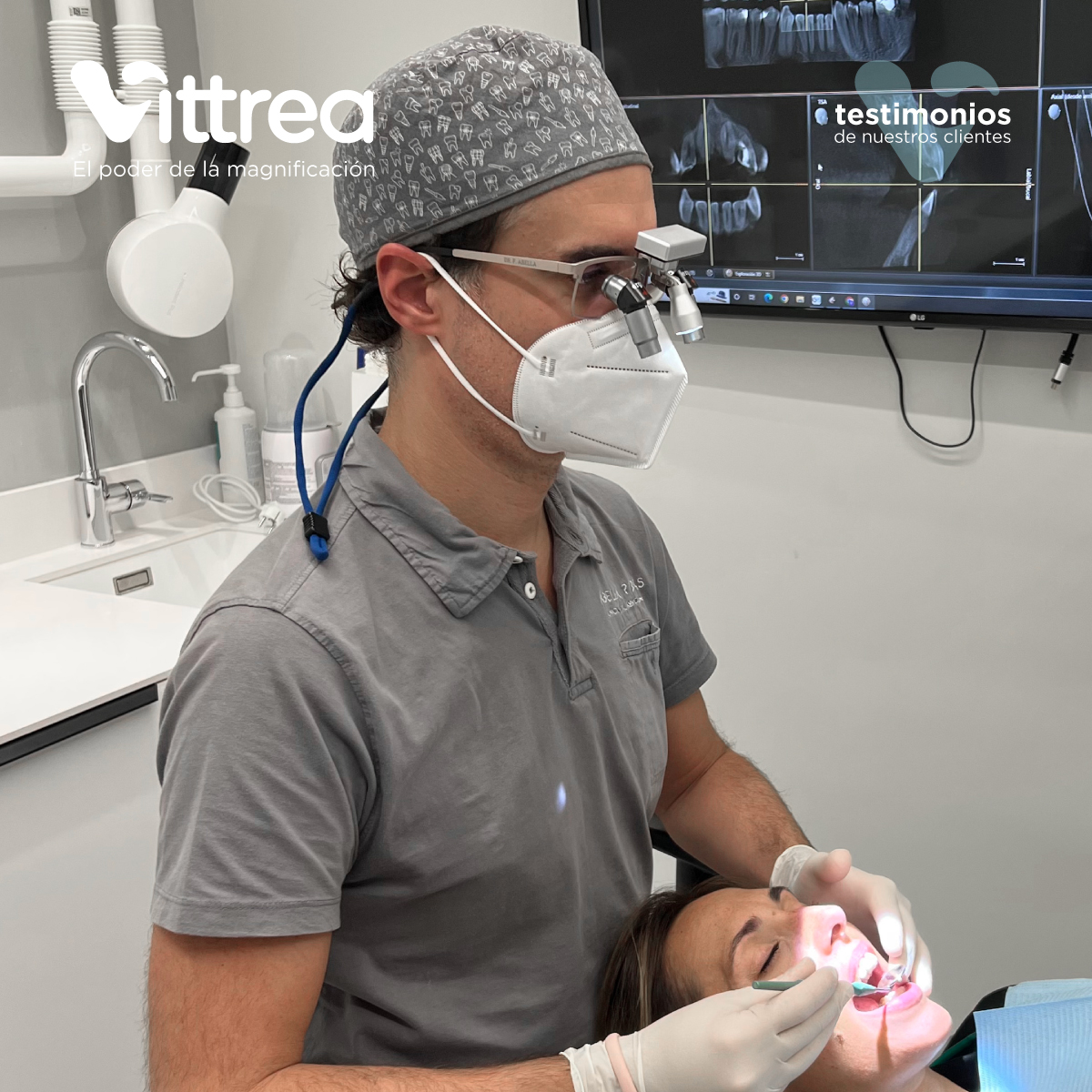
Dr. Francesc Abella and 6 Benefits of Magnification
In his article on Magnification in Endodontics and Restorative Dentistry, Dr. Francesc Abella delves into the benefits of using dental microscopes or loupes.
“Using loupes for individuals still in training is highly beneficial.” This is one of the highlights that Dr. Abella Sans has mentioned in the article he wrote for Gaceta Dental No. 353 – January 2023, titled “Magnification in Endodontics and Restorative Dentistry.”
In this article, he has conducted an analysis of the fundamental principles of Restorative Dentistry and Endodontics and how the introduction of magnification and illumination has significantly impacted these dental specialties.
Francesc Abella holds a Doctorate in Dentistry from the Universitat Internacional de Catalunya (UIC) and serves as the Director of the European Master’s in Endodontics (UIC). He is an active member of the Spanish Association of Endodontics (AEDE), the Spanish Society of Stomatology and Esthetic Prosthesis (SEPES), and the Secretary of the Spanish Society of Conservative Dentistry (SEOC). He practices privately in Endodontics and Restorative and Esthetic Dentistry in Barcelona.
The Benefits of Magnification
Since the 1970s, dentists have progressively incorporated magnification into their daily routines, making it an essential tool today.
The benefits of using magnification from the beginning of practice are numerous. Whether through the introduction of dental loupes, surgical microscopes, or endoscopes, it enhances procedure precision and improves diagnostic capability through better visualization of the operative field.
The key benefits of using magnification include:
- The combination of magnification and illumination allows for more precise work, especially in areas with indirect visibility.
- An enlarged image enables the dentist to examine all types of details.
- Magnification and minimally invasive dentistry go hand in hand, as early detection of affected dental tissues is essential.
- Precise work reduces chair time for the patient.
- The use of dental loupes or surgical microscopes reduces eye fatigue and musculoskeletal pains.
- It motivates dentists to strive for excellence, serving as a constant stimulus.
While microscopes allow for adjustable magnification ranging from 4X to 25X and greater precision in the operative field, dental loupes are in high demand due to their ease of use, improved ergonomics and posture, and more affordable pricing. In fact, you can now find loupes that offer up to 10X magnification.
“Since the early 2000s, the principles of minimally invasive dentistry have been widely promoted in Dentistry (…). Working with magnification leads the clinician to be more conservative with both soft and hard tissues.”
Ergo loupes are a genuine postural revolution
Ergo loupes are an excellent alternative for dentists when using a dental microscope is not feasible. They have a 60º declination angle that allows viewing the operative field without needing to tilt the neck.
In the words of Dr. Abella: “As a result, the clinician can work in a completely upright position similar to when we use a microscope. It’s a totally neutral posture that facilitates comfortable ergonomics and avoids musculoskeletal tension and damage. When using them, loupes automatically correct our posture. Their learning curve is relatively low compared to a microscope, and they can be used in all types of treatments, regardless of our specialty.”
Experience the Power of Magnification
If you’re also considering incorporating magnification into your daily work, our team of optometrists, dentists, and product specialists will provide you with advice without any obligation.
We have a wide range of dental loupes and surgical microscopes.
Contact us! You can email us at hola@vittrea.com or call our customer service number at 984 491 808.
In conclusion, the use of magnification can make a significant difference in your dental procedures, enhancing precision, patient care quality, and clinical case documentation.
If you want to read the full article, please fill out the form here, and we will send it to you.
